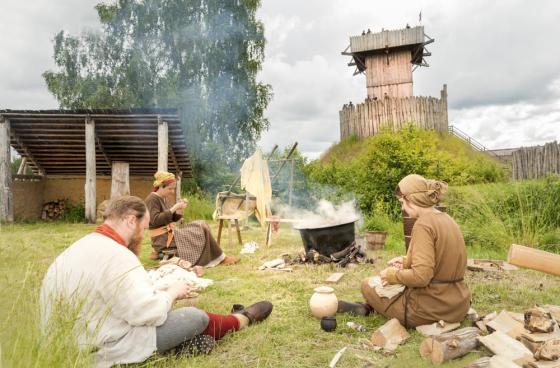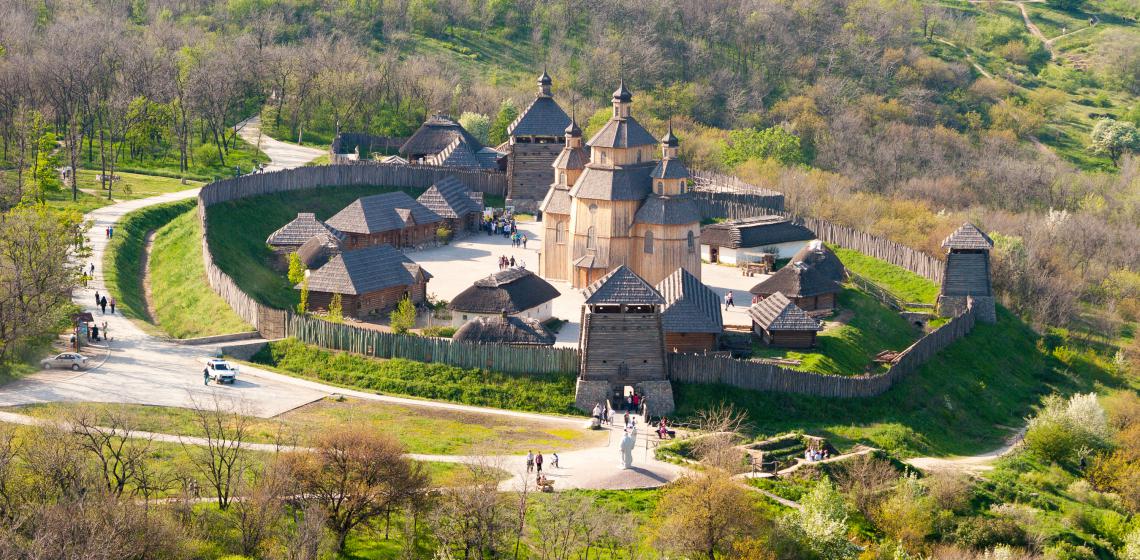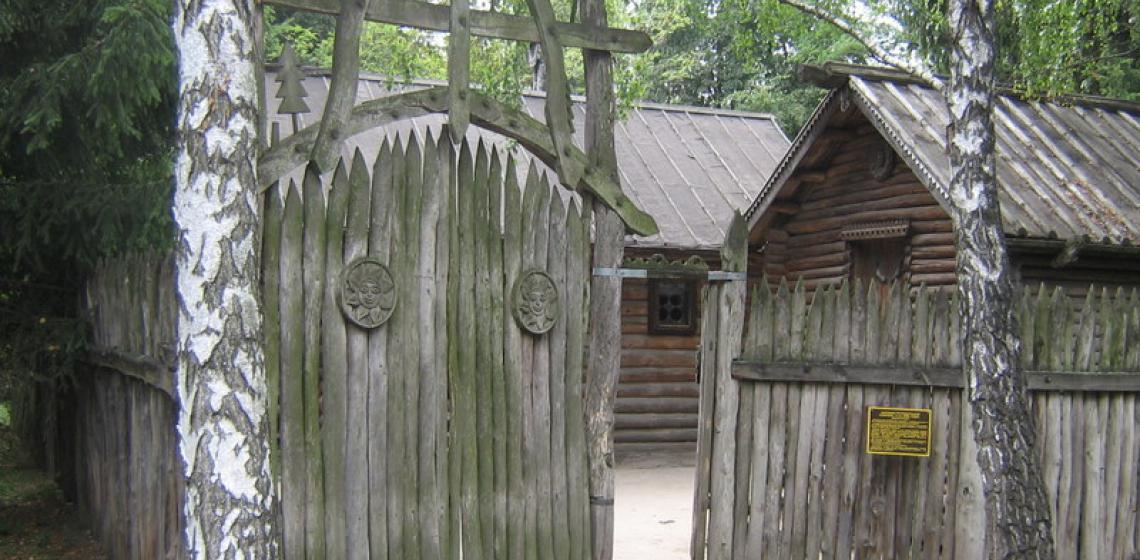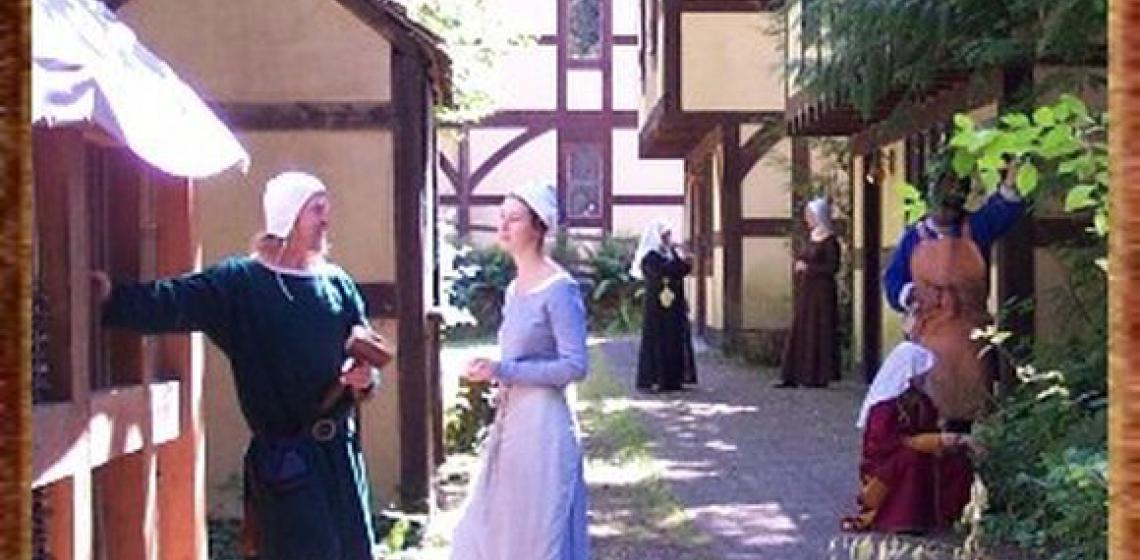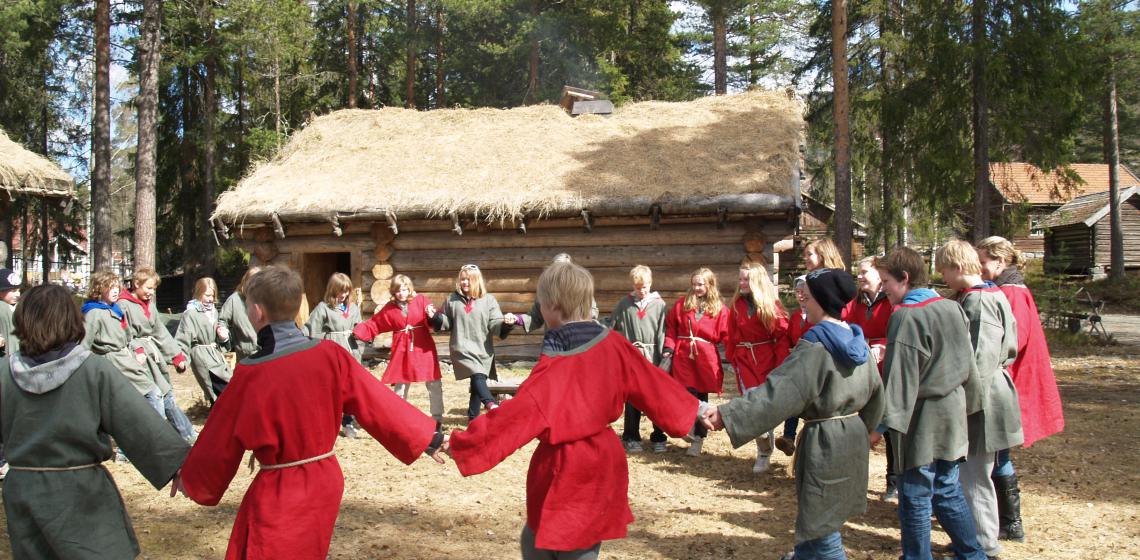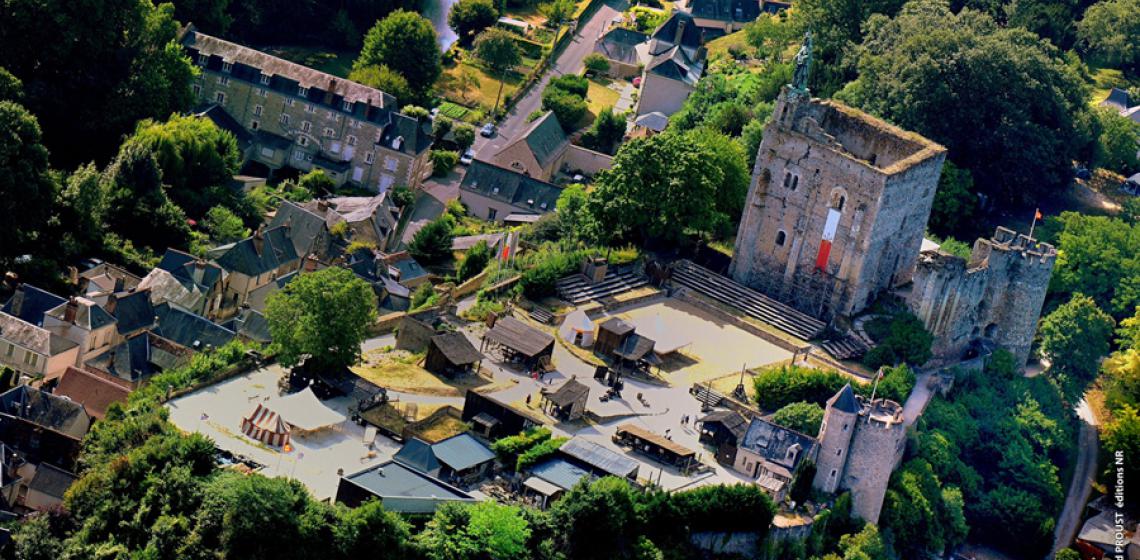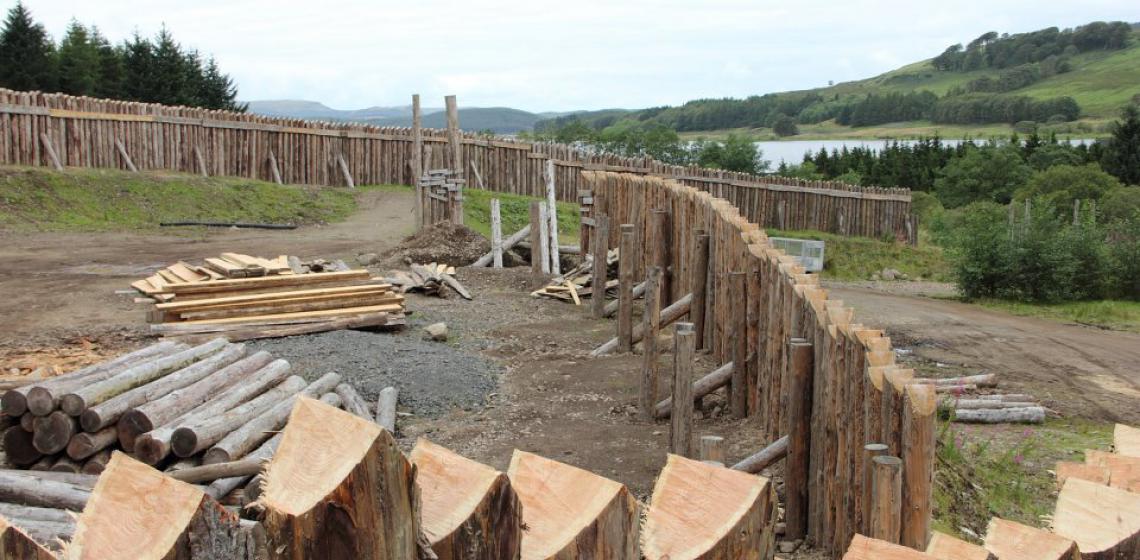Camlann Medieval Village, a living history museum project portraying rural England in the year 1376, is dedicated to offering the public powerful personal experiences of history, including multiple learning and performing arts opportunities, built upon research of rural communities in 14th century England, to provide a deeper understanding of the relationship between those historical events and western society today.
The village is open each weekend from May to the end of September. Village Demonstrations vary each day, and may include archery, blacksmithing, textile production, animal care, artwork, gardening, candle making, hearth cooking, shoemaking, spinning, weaving, clothing design, and other household skills. Presentations provide an in-depth focus on these village activities with the opportunity to interact with knowledgeable villagers, who portray medieval people, discussing their work, their life in the 14th century, and perhaps some village gossip.

